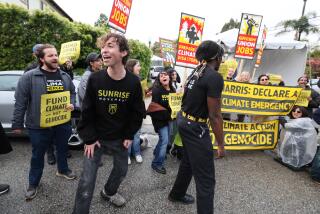Liberals and conservatives can find common ground. Van Jones’ newly streaming movie shows how
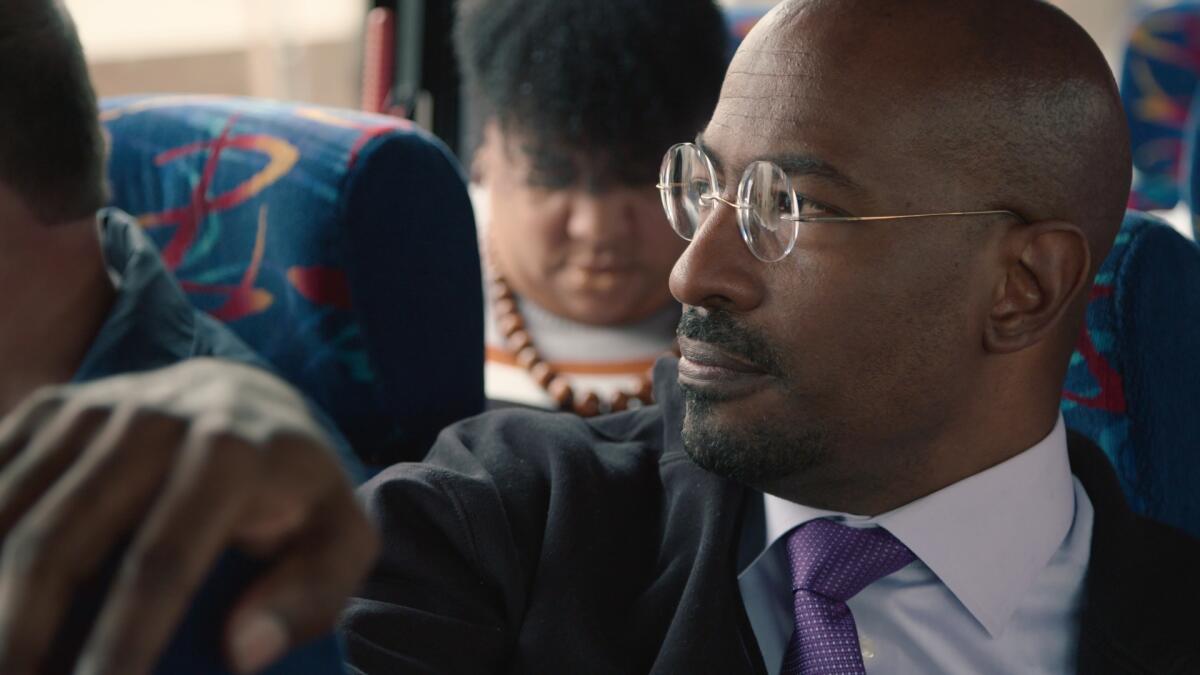
- Share via
For filmmakers Brandon and Lance Kramer, the national political divide was coming into sharper focus by 2015 and starting to seep into their extended family. The brothers’ conversations with aunts, uncles and cousins — dinner-table debates that traditionally had been followed by an after-dinner hug — became harder to keep civil once Donald Trump announced his run for the presidency.
To put a human face on the growing American divide leading into the 2016 election, the Kramer brothers filmed liberal CNN commentator Van Jones going into the homes of Trump supporters in Pennsylvania for a bridge-building dialogue. That Webby Award-winning series, “The Messy Truth,” would become the springboard to a film five years in the making. “The First Step,” which began streaming this week on Prime Video, captures something rare in documentaries: the messy business of finding bipartisan solutions in a hyper-polarized country.
Like their mentors at Chicago’s legendary Kartemquin Films, which produced “Hoop Dreams” and “The Interrupters,” the Kramer brothers believe that compelling social justice storytelling means ample complexity and nuance. No heroes and villains, no black and white, but shades of gray.
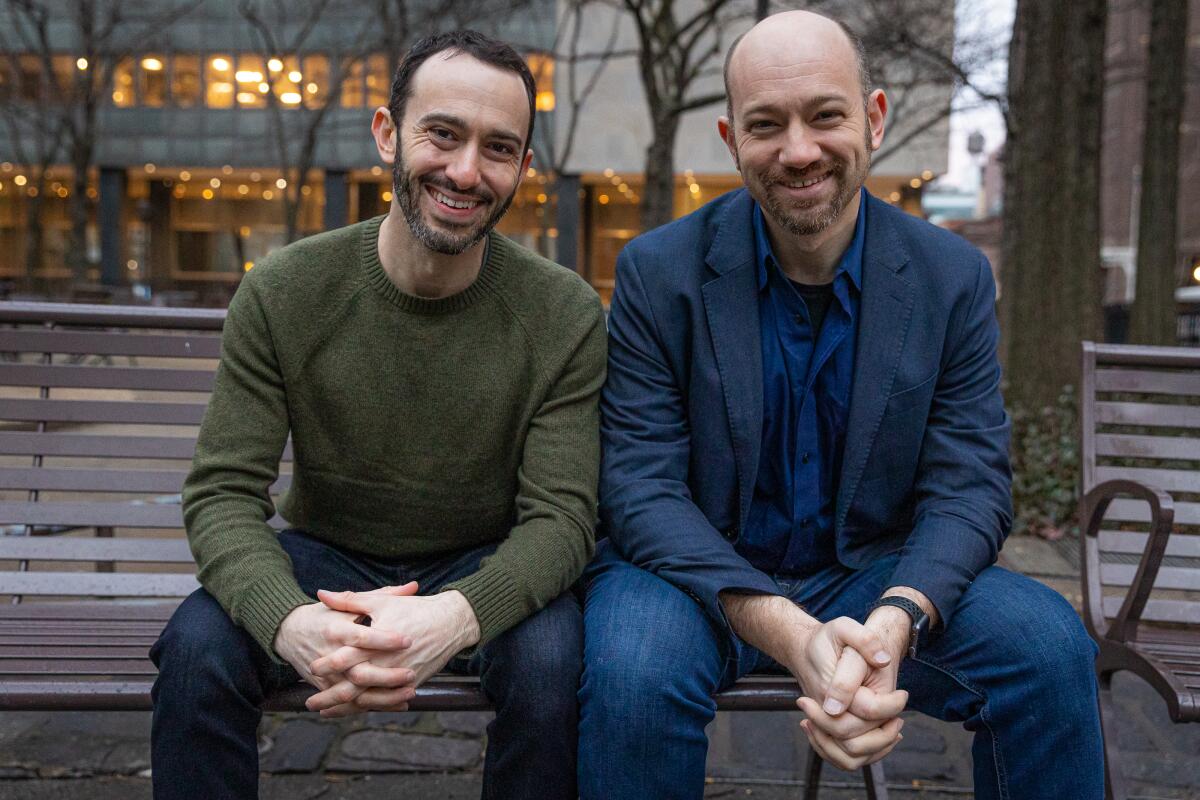
With Brandon Kramer directing and Lance Kramer producing, “The First Step” delivers a twist: how longtime activist Jones, founder of Dream.org, works with Trump son-in-law Jared Kushner, Trump advisor Kellyanne Conway and Trump himself to have Congress pass the First Step Act. The bipartisan criminal justice reform legislation leading to early release from federal prison for those deemed minimum- and low-risk.
Something else you don’t often see in documentaries: leaders from two disparate communities — liberals of color from South Los Angeles and white conservatives from West Virginia — finding common ground, in this case communities wracked by the scourge of addiction. Opioid abuse is seen as a public-health issue in Appalachia, while addiction to crack is treated criminally in Los Angeles.
Jones is not the lone protagonist, but the backlash Jones and his team experience, especially from the left for working hand in glove with the Trump administration, is a focus of the film. In his first in-depth interview on “The First Step,” Jones talks with The Times about being the film’s central protagonist.
How much of a personal risk was working with the Trump administration to pass the First Step Act?
I had been 25 years working on the left, taking on only progressive causes, and I thought if I don’t have enough credit in the bank to spend some of it to help people get out of federal prison, then I’m never going to have it and nobody else will either, and we won’t get anything done. And so I knew the risks. And it wasn’t a close call for me. I never met anybody in federal prison or in state prison who said, “Please help me, get me out of here, but whatever you do, don’t talk to any Republicans.” And I think there are progressives who think it’s their job to make more enemies in the name of purity. But I think it’s my job to make more friends for people behind bars in the name of progress for them.
In the film, you are blunt with a colleague from a liberal organization about the verbal abuse you receive from the left. You cite a racial slur you hear frequently, and you add, “I’ve never been called so many Uncle Toms, I’ve never been called so many sellouts.” How much backlash did you get?
It was ferocious, persistent and demoralizing. But my worst day on Twitter was better than anybody’s best day in prison. So we just fought on.
How did you arrive at the strategy of seeking the support of Kushner and the White House to build the coalition?
Since Jared’s father had gone to federal prison, someone who knew I was working to decarcerate the federal prison system told Jared to call me. Jared was initially hesitant because I’m a left-wing Democrat and continued to be pretty tough on his father-in-law, and my view was very simple. There are about 200,000 human beings in federal prison right now. They don’t get a chance to vote, march or tweet. They are completely captives of the system. And if there is a single White House official that wants to do something to help them, I have a moral responsibility to give all I can to lift the burden of those people who are suffering behind bars. And I never saw it any other way. And I still don’t.
If your mission was stressful, why add to that stress by allowing documentary filmmakers to follow you?
We had worked with the Kramer brothers on “The Messy Truth.” And I guess they thought that somebody crazy enough to go into the homes of Trump voters in Pennsylvania in 2016 might do something else interesting, so they said they’re going to just keep following me around and keep the cameras rolling. And I said, “Sure.” And we had no idea at that time what those cameras were going to capture. And as we got more and more into the passage of the First Step Act, I was used to having them around. I admired their desire to try to use media to show messy nuance and truths to bring people together, especially at a time when so many documentaries seem designed to polarize and demonize people.
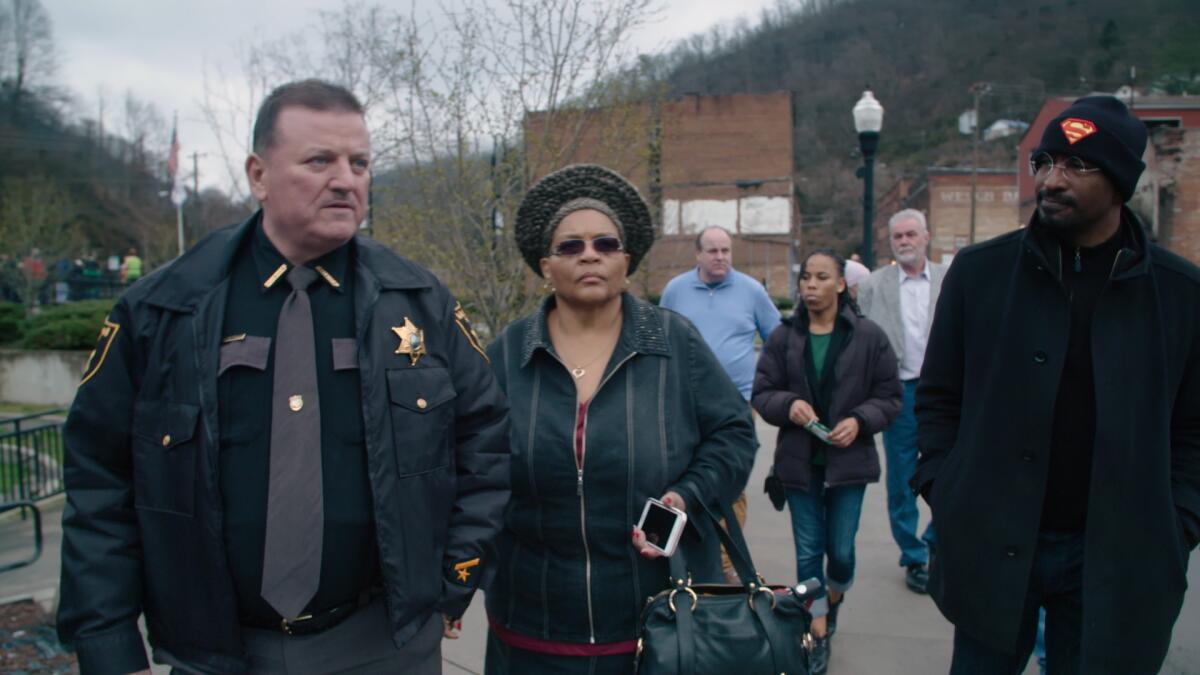
You had liberal L.A. community leaders and conservative West Virginia community leaders join forces. What was the significance of the two groups visiting each other?
We had a slogan at that time at the Dream Corps [now called dream.org] that common pain should lead to common purpose. Common purpose should lead to common projects, and common projects should lead us back to common sense. And I wanted to put that slogan in action. I think what this documentary reveals to people who may not know is that poor white folks in Appalachia and poor Black and brown folks in South Los Angeles are going through very similar problems. And just by getting that small handful of people in the same room, you saw in the documentary that you couldn’t put a piece of paper between the folks from Los Angeles and the folks from Appalachia, because they had been to each other’s homes, they had seen each other’s pain. When you put human beings together who really are suffering the same things, political and racial divides tend to evaporate pretty quickly. It’s going to have to be ordinary people talking with each other in living rooms. And that’s why we started this project. That’s where it ended. And we got a big victory: The bill helped 25,000 people come home from federal prison earlier than they would have.
You’ve said you were able to thread the bipartisan needle because of a rare convergence: The economy was going up, crime was going down, and not insignificantly, you had help from the president’s son in law. So was this a one-off or a real blueprint for how to get bipartisan legislation passed?
You know, it’s both. You take the shot when the shot opens up. And I have a lot of Democrats telling me, wait, don’t do this under a Republican administration, wait for a Democratic administration. And I said it might be 16 years before we have a new administration. Could be four. It could be 24. And by the way, the Democrats don’t have a great record of passing positive criminal justice legislation themselves. And so I saw the stars aligning. ... Even on the issue of crime and punishment, too many Republicans are going back to the “lock them up” rhetoric, and too many Democrats going with the kind of far-left “defund the police” rhetoric.
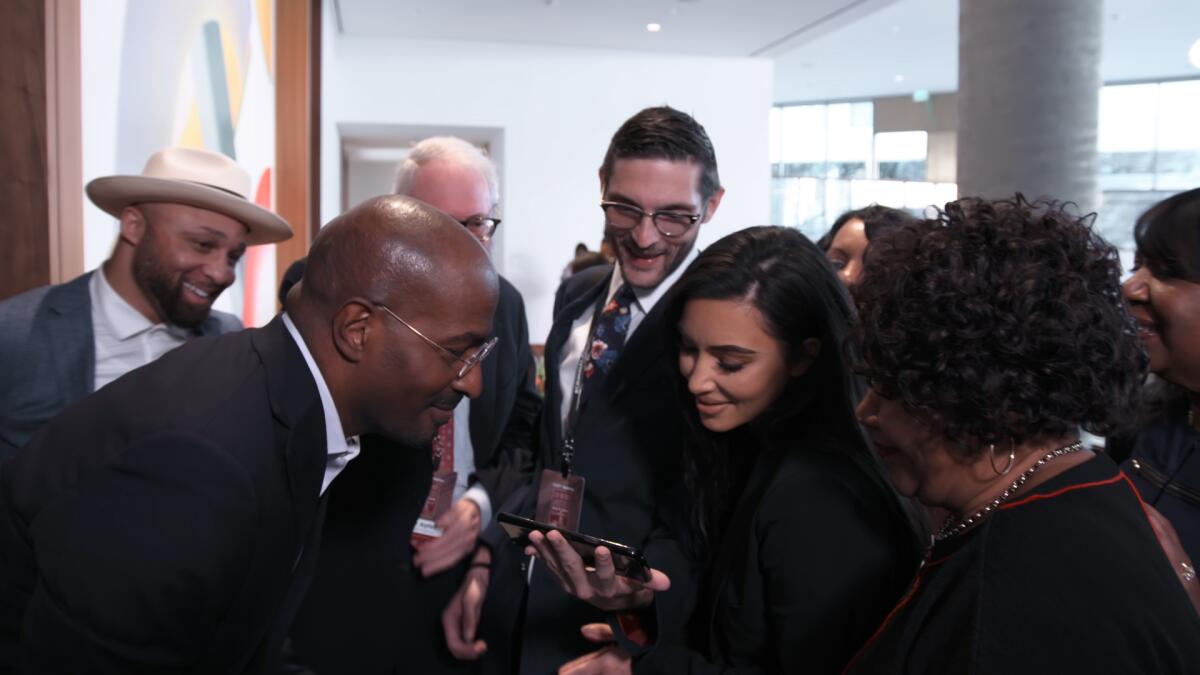
In one of the final scenes of the film, you’re a few feet from the president as he signs the First Step Act in the Oval Office, then turns and passes the pen to you, one of his critics. That must have been surreal.
It felt like a Christmas miracle. According to the ordinary rules of politics, that should never have happened. If I was in the Oval Office, they should have been dragging me out in handcuffs as a protester. And of all the people in that room, for him to hand the pen to me was an acknowledgment that we had done something very unlikely and unusual. And then, a week later, we were back to fighting because I don’t think you should shut the government down the way he did. It didn’t feel surreal. It felt massively redemptive because there were people in that room who have been at each other’s throats before and would be at each other’s throats again within days. But we were there to do something for people who could not vote for anybody in that room, could not donate to anybody in that room, couldn’t march for anybody in that room, couldn’t tweet for anybody in that room. And yet we had the full support of the federal government, massive majorities in the Senate and the House and the president of the United States standing with them. It was massively redemptive in that moment. And it really proved a lot more is possible.
More to Read
Only good movies
Get the Indie Focus newsletter, Mark Olsen's weekly guide to the world of cinema.
You may occasionally receive promotional content from the Los Angeles Times.


